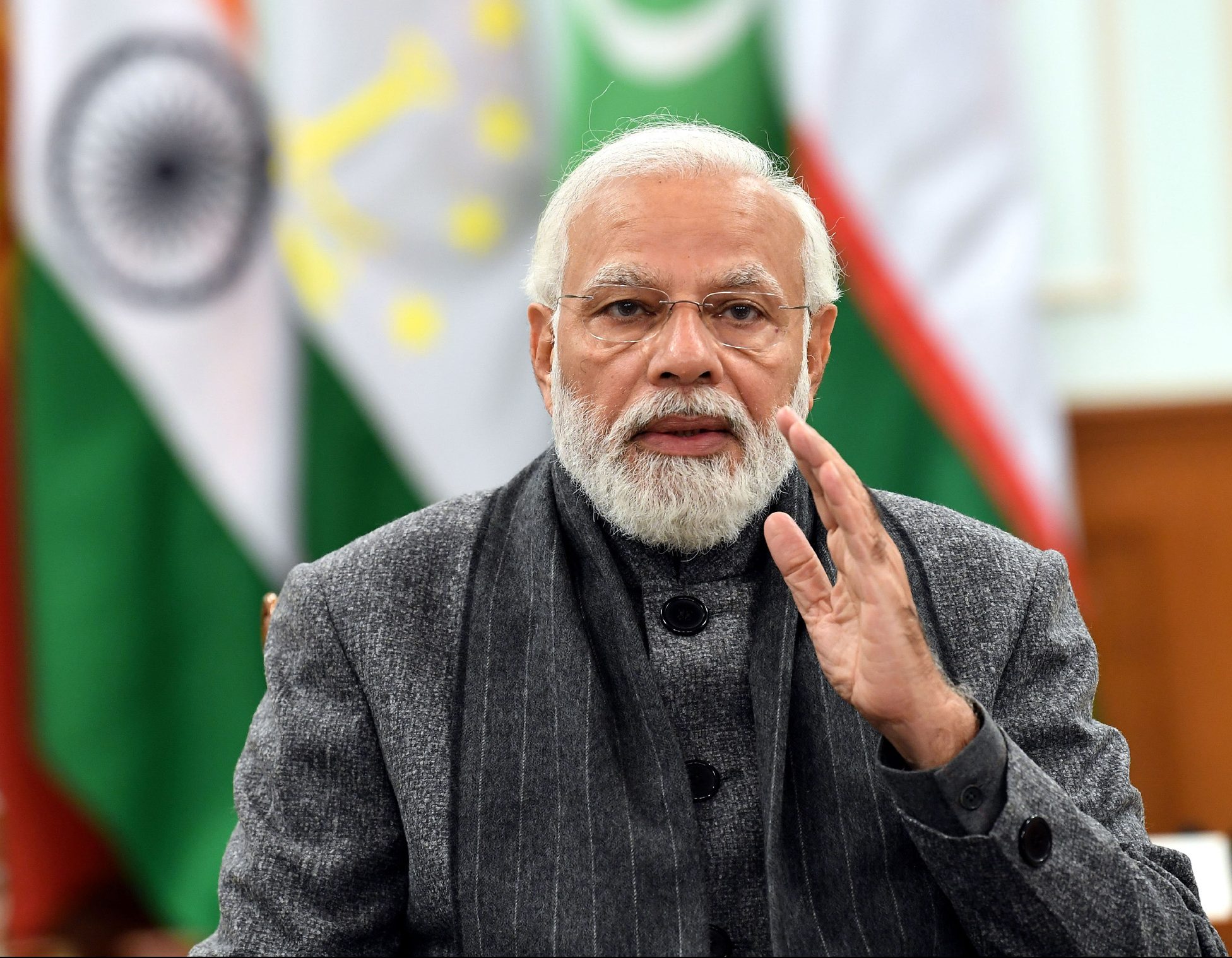New Delhi: Resisting tremendous pressure on India from the Western countries including the US and the UK to condemn the Russian invasion of Ukraine, Prime Minister Narendra Modi during his meeting with Russia’s Foreign Minister Sergey Lavrov drove his message home that no amount of coaxing can force New Delhi to change its stand on the Ukraine crisis. Secondly, PM Modi’s blunt message to the Western nations was also that his government was determined to continue to pursue an independent foreign policy no matter what. That India always used the word “violence” and not “war” despite the West’s pressure speaks volumes about the Modi government’s firmness and determination in terms of pursuing an independent foreign policy, says a diplomat underlining the government’s strategy vis-à-vis the Russia-Ukraine conflict.
Signalling his government’s priority to continue pursuing a policy of strategic independence, PM Modi had stuck to his stand on Ukraine even at the risk of being isolated in the Quad, while the other three members—the US, Australia and Japan—were critical of Russia. Needless to say, PM Modi’s independent and firm stand brought him laurels from various global quarters. Even PM Modi’s insistence on sticking to India’s strategic independence did not go unnoticed by China whose Foreign Minister Wang Yi came calling with overtures for mending fences. Foreign Secretary Harsh Vardhan Shringla recently remarked that “India has received praise at a global level for its foreign policy initiatives.”
Top officials of the Ministry of External Affairs (MEA) told The Sunday Guardian that “PM Modi’s strategy is to remain firm on Ukraine, and also at the same time show the Western countries by example how India’s stance is really aimed at defusing the crisis and, thereby, saving human lives and averting any major humanitarian crisis.” “India expressing concerns about the humanitarian crisis in the conflict-torn zone is a message for US Secretary of State Antony Blinken who referred to the same during telephonic talks with EAM S. Jaishankar ahead of Lavrov’s visit,” sources said.
PM Modi’s statements during his meeting with Lavrov are being seen as part of this strategy. PM Modi conveyed to Lavrov that India stands ready to contribute in any way possible to the peace efforts to resolve the conflict in Ukraine. He also in the same breath called for early cessation of violence in that country. External Affairs Minister S. Jaishankar went a bit further and called for respecting the UN Charter and the sovereignty and territorial integrity of all states in a message for Moscow as well as for the global community.
Sources at MEA interpret PM Modi’s proposal to mediate between Ukraine and Russia as a message to the West that India seeks to be instrumental in restoration of normalcy and peace between the two nations, while what other countries are doing is adding to the problems and tensions between Moscow and Kyiv. India wants to be seen as making efforts to ease the tensions there, say sources.
PM Modi’s remarks amounted to a clear message to the US, UK, Germany and other NATO nations that condemning one nation or the other is hardly going to serve any purpose, rather it will add fuel to fire, a diplomat says. “PM Modi expressing his desire for contributing to peace efforts assumes importance as it came close on the heels of leaders and diplomats from UK, Germany and the US mounting pressure on India during their visit here to isolate Russia over the Ukraine crisis,” an official associated with the bilateral meetings told this newspaper.
While stressing on the need for a swift and early cessation of violence, PM Modi sought to put his point across that even if India was stopping short of joining the western democracies to condemn Russia, it was, at the same time, ramping up pressure on Moscow to stop the military operation. “Where are the western countries’ efforts in this direction?” asks a diplomat. “What they are doing is just whipping up tensions,” he adds.
That the PM agreed to meet Lavrov was in itself a message to the Western powers, as UK and Chinese foreign ministers who visited Delhi recently were not allowed to call on him. Sources said PM Modi’s strict instruction is that the West’s point of view seeking to find fault with India’s foreign policy in terms of the Ukraine situation should be countered logically and emphatically.
Top sources told this newspaper that EAM Jaishankar categorically told the visiting UK Secretary of State Liz Truss ahead of Lavrov’s visit that India’s Ukraine stand should not be linked to its so-called dependence on Russia for military equipment. The UK’s foreign minister was told that “India also contributes a lot to the Russian economy if it buys defence equipment from Russia. Where is the compulsion then?” Truss who was wanting India to cut its dependence on Russia was confronted with this logic, sources say.
In what underlined Russia’s assessment of India’s overall approach so far, Lavrov said that the US pressure would not affect India-Russia relationship. On India’s view on the Ukraine crisis, the Russian minister said that India’s foreign policy is guided by its independent position.
“I believe that Indian foreign policies are characterised by independence and the concentration on real national legitimate interests. The same policy is based in the Russian Federation and this makes us, as big countries, good friends and loyal partners.” Sources said that this was Russian President Vladimir Putin’s message which Lavrov conveyed to the PM.
Ahead of his meeting with PM Modi, he had said if India wanted to mediate for resolution to the Ukraine problem, such a process can be supported. MEA officials see this as Russia’s request for India to start mediating.
India’s policy of strategic independence stands it in good stead
- Advertisement -

